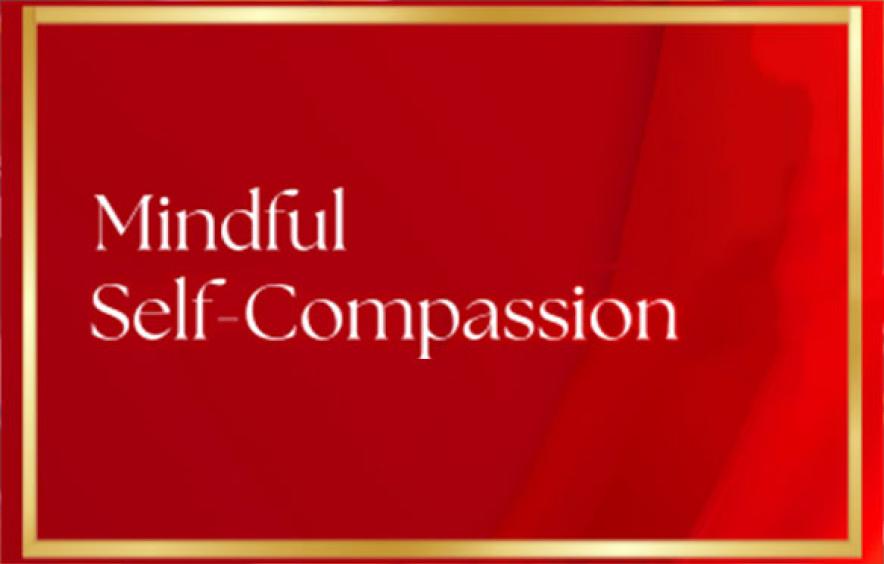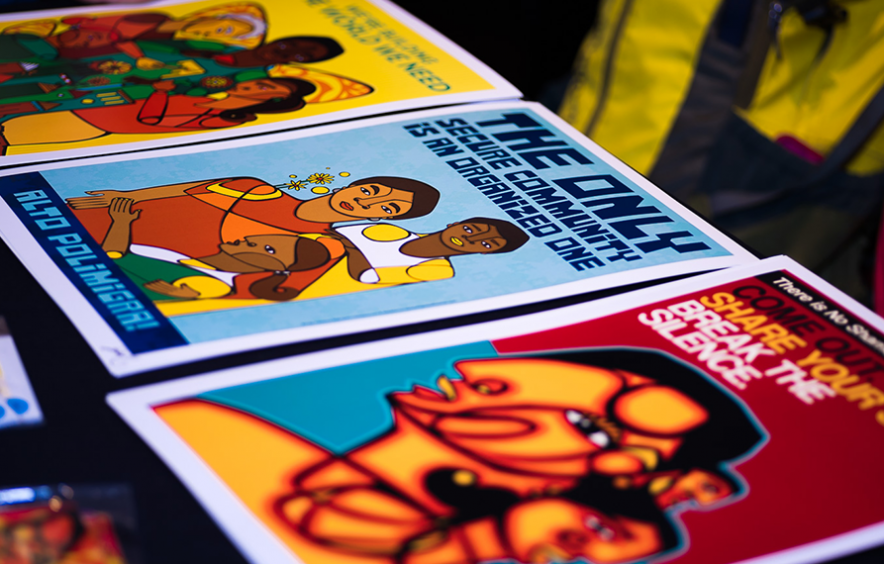Events at GSSW
A Hub for Social Justice and Civic Engagement
At the Graduate School of Social Work (GSSW), we’re serious about our role as a catalyst for social change in communities near and far. With topics that span social work and social justice interests, our events bring the University of Denver campus and broader community together to learn, grow, mobilize and drive change.
When violence in Charlottesville, Va., captured national headlines, we responded with lectures and workshops that explored racial justice and provoked meaningful — and sometimes difficult — reflections and conversations. When political differences threatened to divide the nation, we answered with the Civic Education for Civic Engagement series, which brought campus and community together in a spirit of collaborative problem-solving.
Helpful Links:
Many of our events sell out. Be the first to know what’s coming so you don’t miss an opportunity to learn, grow and drive change.

Mindful Self-Compassion | 10-Week Course
October 7 - December 16, 6 - 8 p.m.
Mindful Self-Compassion (MSC) is an empirically-supported program designed to cultivate the skill of self-compassion. Based on the groundbreaking research of Kristin Neff and the clinical expertise of Christopher Germer, MSC teaches core principles and practices that enable participants to respond to difficult moments in their lives with kindness, care and understanding.
-
Course Description
The three key components of self-compassion are self-kindness, a sense of common humanity, and balanced, mindful awareness. Kindness opens our hearts to suffering, so we can give ourselves what we need. Common humanity opens us to our essential interrelatedness, so that we know we aren't alone. Mindfulness opens us to the present moment, so we can accept our experience with greater ease. Together they comprise a state of warm-hearted, connected presence.
Self-compassion can be learned by anyone, even those who didn't receive enough affection in childhood or who feel uncomfortable when they are good to themselves. It's a courageous attitude that stands up to harm, including the harm that we unwittingly inflict on ourselves through self-criticism, self-isolation, or self-absorption. Self-compassion provides emotional strength and resilience, allowing us to admit our shortcomings, motivate ourselves with kindness, forgive ourselves when needed, relate wholeheartedly to others, and be more authentically ourselves.
Rapidly expanding research demonstrates that self-compassion is strongly associated with emotional wellbeing, less anxiety, depression and stress, maintenance of healthy habits such as diet and exercise, and satisfying personal relationships. And it’s easier than you think.
After participating in this workshop, you’ll be able to:- Practice self-compassion in daily life
- Understand the empirically-supported benefits of self-compassion
- Motivate yourself with kindness rather than criticism
- Handle difficult emotions with greater ease
- Transform challenging relationships, old and new
- Manage caregiver fatigue
- Practice the art of savoring and self-appreciation
-
What To Expect
Program activities include meditation, short talks, experiential exercises, group discussion, and home practices. MSC is a workshop rather than a retreat. The goal is for participants to directly experience self-compassion and learn practices that evoke self-compassion in daily life.
MSC is primarily a compassion training program rather than mindfulness training, although mindfulness is the foundation of self-compassion. MSC is also not psychotherapy insofar as the emphasis of MSC is on building emotional resources rather than addressing old wounds. Beneficial change occurs naturally as we develop the capacity to be with ourselves in a kinder, more compassionate way.
Compassion is a positive, energizing emotion. However, it is said that “love reveals everything unlike itself.” While learning self-compassion, some difficult emotions may arise. MSC teachers are committed to providing a safe and supportive environment for this process to unfold, and to making the journey enjoyable for everyone.
This MSC includes 10 weekly sessions of 2 hours each. Participants should do their best to plan to attend every session and practice mindfulness and self-compassion regularly throughout the program. -
Prerequisites
Everyone is welcome, including people of all backgrounds and identities. No previous experience with mindfulness or meditation is required to attend MSC. Participants will be asked to provide some personal information when they register for this course to help teachers determine their safety and readiness for this kind of emotional work.
The Mindful Self-Compassion Workbook, by Kristin Neff and Christopher Germer (2018) is an optional companion to the MSC course, but is not required.
For those who wish to integrate MSC into their professional activities, Teaching the Mindful Self-Compassion Program, by Christopher Germer and Kristin Neff (2019) is also recommended. However, please plan to take MSC primarily for your own personal insight and development. This program fulfills one of the prerequisites for becoming an MSC teacher. For more information on MSC or MSC Teacher Training, please visit www.centerformsc.org -
Instructor
Lisa Vratny-Smith, MSW, E-RYT 200, RYT 500 (she/her) was a School Social Worker in Aurora Public Schools (APS) from 1994 to 2024 and launched her wellness and consulting business, Finding the Balance Within, LLC, in 2019. She has been practicing yoga, mindfulness, and meditation since 1994 and teaching since 2002. Lisa most recently served as a Sustainable Wellness Coach in APS combining her social work, yoga, and meditation training to support the development and implementation of mindfulness based wellness programs for staff and students. She leads various classes, continuing education courses, retreats, and workshops throughout the year, as well as providing individual sessions of energy and sound healing. Lisa is a Trained Teacher of Mindful Self-Compassion, a Trainer in the
Neurosequential Model in Education, a Reiki Master Teacher, and a Certified Sound Healing Practitioner.

Events That Engage
Over the past two years, more than 10,000 people in 21 states have participated in GSSW events either online or on campus. All of our events are designed to be inclusive and accessible — most are free and many are live streamed. We invite alumni and experts from throughout the campus and community to share their knowledge.
Virtual Continuing Education
Our continuing education programs — from licensure preparation to professional development — provide ongoing opportunities for our alumni, social work practitioners and community members to strengthen and enhance their professional knowledge and repertoire of skills. Want to learn something completely new? You can do that, too.




